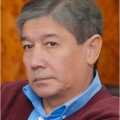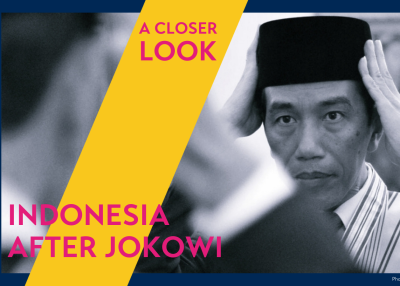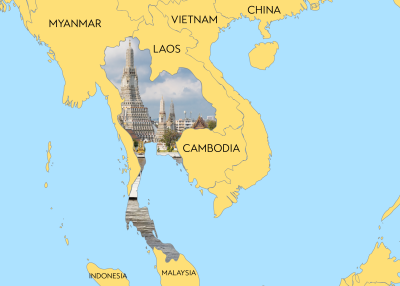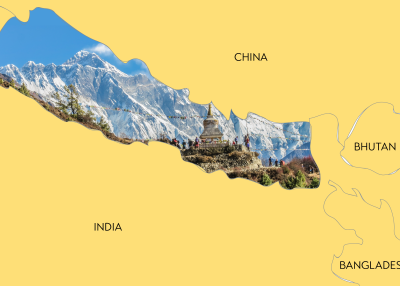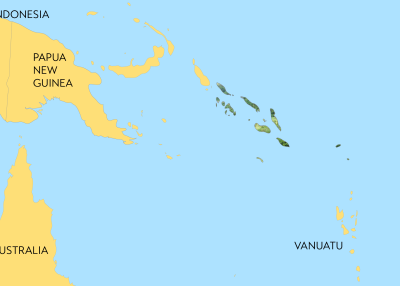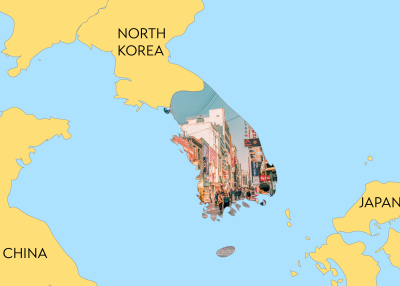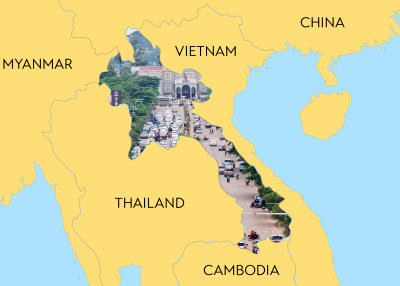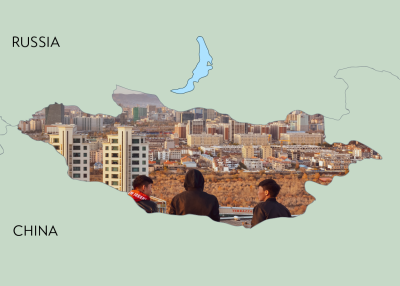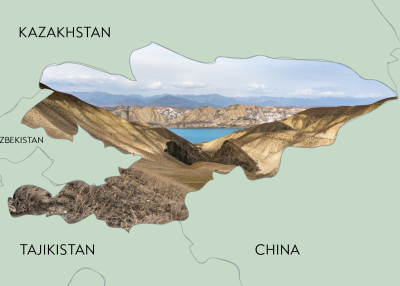Episode 2: A Closer Look at Uzbekistan
Through the Eyes of a Human Rights Lawyer and a Political Scientist
In the second episode of "A Closer Look" we explore the land locked and most populous country of Central Asia: Uzbekistan. After two decades of economic and political isolation under the former President Islom Karimov, there are hopes that the current president’s “Quiet Revolution” will bring needed change to the country’s society and economy. Among others, the current government has supported the creation of civil society organizations, and has allowed more freedom for media actors.
Our key takeaways
Uzbekistan’s main strengths and concerns
Uzbekistan’s two main strengths are its geography (Uzbekistan is in the centre of Central Asia), as well as the on-going political shift since 2016. There have been widespread reforms in areas such as human rights, economy, and ecology. People’s voice can now be heard, and there is space for civic engagement (something which 10 years ago was unimaginable)
Currently, the greatest concern is the Covid-19 pandemic. It has become increasingly clear that the government is not in a position to take research-based decisions, rather, it is prepared to take advantage and limit human rights (to benefit own politics and own interests).
The biggest misconceptions about Uzbekistan
The biggest misconception about Uzbekistan according to Dilfuza manifests itself in questions such as: “Do you have internet in Uzbekistan?”, or: “Can you book flights?” In fact, services in Uzbekistan are becoming more digitalized, allowing for more and more people to have access to these. During the Covid-19 crisis, non-cash payments surged, and it was possible to support families without physical attendance. While much more development is still needed, in general it can be said that the age of digitalization has reached Uzbekistan, with 2020 being named “Year of Digitalization”.
Current state of society, politics and economy
Uzbekistan’s society can be characterized as a hybrid society. It has distinct modern characteristics while at the same time archaic clan relations remain within the society (though this also varies from province to province). In addition, people sometimes talk of the “Soviet-syndrome”: many aspects of former system persist even throughout 30 years of independence.
The current political system can be characterized as an authoritarian rule and is far from being democratic. When Uzbekistan became independent, democracy was declared, but: "we see just a little sign of democratization in a political sense (president-centric system)", says Dr. Tolipov. Here, too, we see a persistence of the country’s Soviet legacy (political traditions, political behaviour: “everything reminds us of the recent Soviet past”).
Market reforms were declared and there have been step-by-step market reforms since Uzbekistan’s first day of independence.
On-going reforms in Uzbekistan
Uzbekistan has taken on a new course under current president since 2016 (some call this a “Quiet Revolution” or a “Revolution from above”, though others would not agree with these expressions).
Since 2016 there have been no social disturbances, the currency exchange system has been unified (this actually happened from one day to the next), and it became possible to actually call the president’s office and submit a complaint. This was a way of building trust between the government and the people. Also, civic engagement has been enlarged and it is now mandatory that an advisory council, which includes individual experts, is in place. However, it can be seen that decisions are still made top-down rather than bottom-up, and in fact, no grassroot initiatives have ever been implemented so far.
The current president is more reform-orientated, more democratic and more liberal than his predecessor, and there has been a shift from numerous restrictions towards a more liberal life, though only a very slight one, and there is much to do to create a democratic system in Uzbekistan. There is little doubt that the president will be re-elected for a second term this year, but the more important question here is: "what will happen in five years during the next election?", according to Dr. Tolipov. Currently, there are no opposition parties in Uzbekistan (they are all blocked), and there is no popular or well-deserving person in Uzbekistan who could challenge the current president. The central problem which the current president is and will be facing is to successfully launch political reforms.
Uzbekistan's cotton industry
Uzbekistan is one of the world’s leading cotton producers. Prior to the former president’s passing, forced labour in this area was a huge issue, with around 2 million people being involved in picking cotton during harvest time, many of them subject to forced labour. Since 2016, this situation has improved dramatically, with forced labour being close to eradicated, and civil society being more involved in Uzbekistan’s cotton industry.
Before 2016, the main challenge was that people did not dare to complain for fear of their personal safety; nor did they trust the government. Now, independent third-party monitoring groups have been launched by embassies, international organizations and the finance sector in Uzbekistan. These groups of activists and human rights lawyers have the possibility to actually go to the cotton fields without being accompanied by government officials, and make sure that workers are getting paid and no child labour is in place. One can say that now, there is no longer any systemic forced labour (there are still some cases, but these are not systematic), according to Dilfuza.
Uzbekistan’s involvement in China’s Belt and Road Initiative (BRI) and Reactions from Russia
All countries in Central Asia, and primarily Uzbekistan, are dealing with problems of transport corridors and diversification. Recently new highways have been built in Uzbekistan (by Uzbekistan) connecting the country to Iran, Afghanistan, etc. Uzbekistan is also very much interested in opening southern ports in India and a focal discussion point of the government, experts, and politicians today are the creation of railways connecting Uzbekistan to India.
The most-discussed and most attractive project today is China’s Belt and Road Initiative (BRI), which was launched in 2013 by China’s current leader Xi Jinping. The BRI is a comprehensive and ambitious project which includes millions of different projects (gas/oil pipelines, hubs, logistics, infrastructure) and is interpreted as an ambitious project of China to project its soft power. There are numerous initiatives within the framework of the BRI, such as encouraging people to study Chinese (China has opened two Confucian institutes Uzbekistan, one in Samarkand and one in Tashkent).
The fact that Uzbekistan has been getting closer to China has provoked friction with Russia; indeed, there is a noticeable tension (which is sometimes soft, sometimes very acute), as there is a conflict of interest between China and Russia in this area. As an example of the competition between China and Russia: Russia is working on creating and developing a Eurasian Economic Union (a so far very small union of Russia, Belarus, Kazakhstan, Kyrgyzstan and Armenia, named “EAEU”), which was granted observer status in 2020. Today, a hotly debated issue is whether or not Uzbekistan will become full-fleshed member of EAEU. The problem here is the incompatibility between EAEU and BRI in terms of connectivity (Russia’s president Vladimir Putin proposed a concept of connectivity between Eurasia and BRI, BUT: this is an open question how to do that due to clashes of interest), says Dr. Tolipov.
Tourism in Uzbekistan
Covid-19 hit the tourist industry of Uzbekistan hard. Tourism in Uzbekistan actually only started recently; ever since 2017/18 when visa procedures were simplified or waived completely. Before then, it was very difficult to obtain a visa and backpacking or staying at a friend’s place was nearly impossible. These days, however, it is possible to travel around freely, and while it used to be the case that you could only reach other areas of the country via the capital, Tashkent, transportation services have been improved significantly and are very convenient for travellers.
One place, one dish
Green dumplings (now in season in Spring/Summer), recommended by Dilfuza
Watermelons (very big and very tasty in the Summer), recommended by Dr. Tolipov
Khiva (ancient city), recommended by Dilfuza
The capital city Tashkent with its big bazaars and the famous Tashkent metro (featuring very beautiful tunnels and stations). Most stunning station: “Cosmos” station, recommended by Dr. Tolipov
Book recommendation
New Silk Roads by Peter Frankopan
Publications by Dr. Farkhod Tolipov
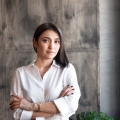
Dilfuza Kurolova is a human rights lawyer and founding-curator of the Global Shapers Tashkent Hub, the youth initiative of the World Economic Forum. She is also a part of the Social Development Team of the World Bank on citizen engagement. In addition, she is a Speakers Curator of TEDx Mustaqillik Square since 2016, an active member of the Central Asian Youth Networking (CAYN) since 2010, and OSCE Youth Ambassador for Uzbekistan since 2015. Previously, she worked at the International Commission of Jurists, an international NGO based in Switzerland implementing the ACCESS project to promote economic, social and cultural rights in Uzbekistan, and a Third-Party-Monitoring project of the ILO in Uzbekistan covering labor rights and feedback mechanisms during cotton harvest 2016-2020. As an active promoter of human rights, particularly right to food and other social rights, she was a consultant at the Child Protection Section of UNICEF Uzbekistan CO in 2018 covering protection policy of children left behind by migrating parents. In addition, she runs her own social project since 2019 in providing free legal consultations through social media accounts. Dilfuza has a Master`s Degree in Politics and Security from the OSCE Academy in Bishkek and LLM on International Law from the Tashkent State University of Law.
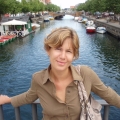
Simona A. Grano is Senior Lecturer at the University of Zurich (UZH) and Director of the Taiwan Studies Project at UZH. She completed her Ph.D. in Chinese Studies at Ca' Foscari University of Venice, Italy. She has held research positions and taught China Studies and Taiwan Studies at her alma mater, at the University of Zurich in Switzerland and at the National Cheng'chi University in Taiwan. She has also been a visiting scholar at the University of Hong Kong and is a research fellow of the European Research Center on Contemporary Taiwan (ERCCT), in Tübingen, Germany as well as a research associate of SOAS for the year 2021. Simona's regional expertise centers on the People's Republic of China as well as on Taiwan and Hong Kong. She is the author of Environmental Governance in Taiwan: a new generation of activists and stakeholders, which has been published in 2015 by Routledge. Her new co-edited monograph titled Civil Society and the State in Democratic East Asia: Between Entanglement and Contention in Post High Growth (Amsterdam University Press, 2020) analyzes the dichotomy between civil society and the state in Japan, South Korea and Taiwan.
